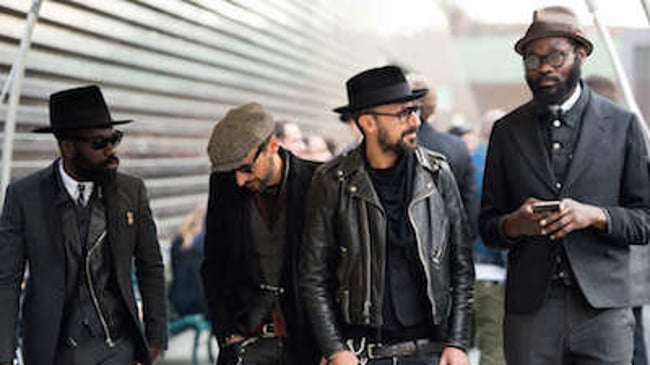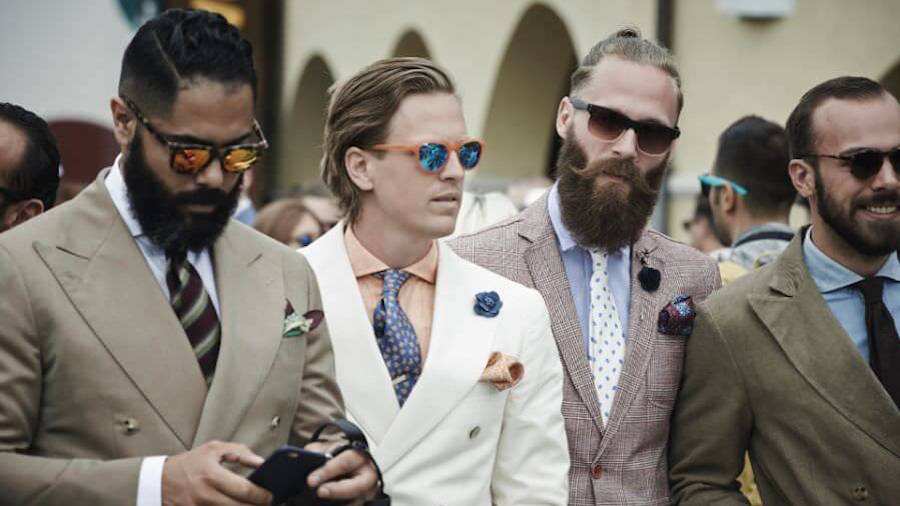

Evolution is categorical; beards will soon be utterly useless.
Some men, Leo DiCaprio in the Revenant, or Tom Hanks in Cast Away for example, have no choice but to grow a magnificent beard. Confronted with an urgent need to survive, they had other concerns than grooming. Their choice wasn’t really a fashion statement anyway, we all know that in all circumstances, beards simply keep growing, and in this scenario, they helped protect their owners from the wrath of nature. This probably isn’t your case with your neatly trimmed and oiled 3-day beard, finely waxed moustache, or clean-shaven face.
Your choice of facial hair style may have various reasons: to hide your chin, to slim down your face, to look a few years older, etc. There is no rule dictating you should stick to a specific style, either, and it is up to you to experiment and discover new possibilities. Maybe your significant other also has their say. In fact, pogonophilia is probably one of the top reasons explaining the current existence and popularity of beards.
It is a known fact that sexual selection plays an important role in evolution. It enables certain sought-after qualities and characteristics to live on, while others die off, such as asking for directions as opposed to being so proud you’d rather go around in circles for hours. Facial hair is one of the most visible differences between men and women, and its development could have been encouraged by the success - and subsequent increased amount of opportunities to reproduce - bearded men have with women.
Peak beard
A study on the relation between seduction and beards came to a rather striking conclusion: the higher the proportion of men to available partner is, the more beards and moustaches are trendy. It’s not really a matter of one style being better than the other; the reason is much simpler than that. While studies still haven’t been able to declare one style superior to the other, they have shown that there was a higher level of attraction for the rarest of both facial hair styles within the male population; an evolutionary phenomenon called “negative frequency-dependent selection”.
This is where the paradox reaches its peak. Beards have a seduction and recognition advantage only due to their rarity in an extremely competitive market. Except beards are now extremely popular, and widely accepted. The beard on your cheeks is no longer the sign of laziness and neglect which makes your parents and hierarchy frown. 3-day beards, such as the one sported by Conan O’Brien when he made his comeback, the one everybody seems to have on the red carpet these days, or even yours - because shaving daily seems like an unnecessary complication - prove it: beards are the norm. In some industries having a beard is even a prerequisite. An outward symbol of rebellion has become conventional.
The beard’s success will be its downfall. Peak beard it’s called, when distinctness is outweighed by quantity.

Law of scarcity
There may be another reason for the beard’s popularity. Scientists have looked into another form of sexual selection and determined that on top of being attractive to your potential partner, there is also the matter of deterring any potential competition. At that game, beards provide a competitive edge by making their owners look older, stronger, and more aggressive, thus establishing their dominance and increasing their reputation among other men, intimidating part of the competition, and in the most extreme cases, scaring them off. Think Dan Bilzerian, but more mellow and subtle, two qualities he hasn’t quite mastered yet. Your beard is a signal to both women and men, which explains the beard’s popularity in antique warrior cultures, and more recently in American sport teams when playoff season comes. Genghis Khan is genetically linked to 8% of the total Asian population, and he had a beard. Enough said.
By gaining in popularity, beards have lost their distinctness, and their social utility is diminishing as fast as they are growing on every other face. Fashion cycles are an excellent reflexion of this phenomenon. In the 1890s, 90% of men featured in the London Illustrated News were bearded, by the 1970s that number had fallen to 20%. This evolution makes it pretty clear that returning to a clean-shaven look for summer could yield great results. Your skin will thank you for it, too.
This summer, don’t hesitate, bare it all.